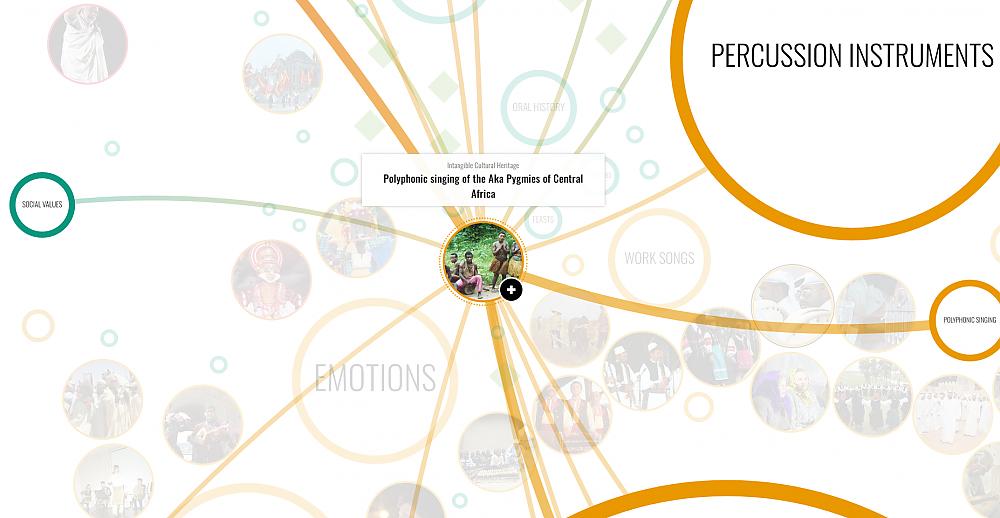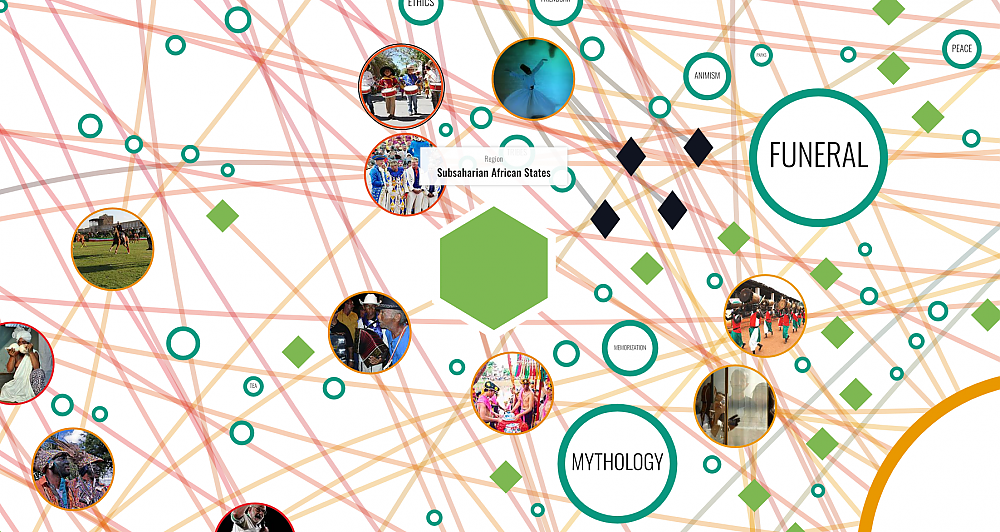African intangible cultural heritage
Since the 2003 Convention for the Safeguarding of the Intangible Cultural Heritage (ICH) was adopted, Africa has been one of the most active regions for implementing it, with 50 States Parties coming from the continent. Africa’s rich living heritage plays a fundamental role in building a strong cultural identity and shared values across the region, which are key to archieving the African Union Agenda 2063 and the 2030 Agenda for Sustainable Development. As one of its Global Priorities, UNESCO strives to support communities, national and local authorities,for the effective implementation of the 2003 Convention in Africa and the safeguarding of its living heritage across generations.
Living heritage in Africa at a glance
- 50 States Parties
- 118 elements inscribed by States Parties from the African continent
- 25 elements inscribed on the Urgent Safeguarding List
- 92 elements inscribed on the Representative List
- One proposal selected for the Register of Good Safeguarding Practices
- US$ 4.8 million assistance granted through the Intangible Cultural Heritage Fund
- 33 facilitators based in Africa (24% of total members)
- 2 UNESCO Chairs Omar Bongo University, Gabon (Bantouphonie: languages in danger, endogenous knowledge and biodiversity)
- 1 Category 2 Centre - Regional Centre for the Safeguarding of Intangible Cultural Heritage in Africa (Algeria)
Some recent inscriptions in Africa
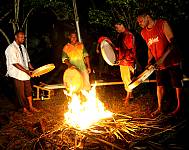
© Mr Johnny Volcere, Seychelles, 2013
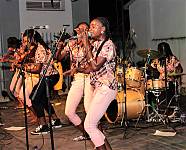
© Etienne Kokolo, Kinshasa, République du Congo, 2017
Democratic Republic of the Congo and Congo, Congolese rumba, Representative List of the Intangible Cultural Heritage of Humanity >
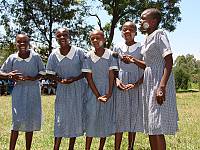
© Patrick Maundu, Kenya, 2012
International Assistance in Africa
As a region, Africa has taken advantage of the largest proportion of assistance granted through the Convention’s International Assistance mechanism. Initiatives focus on the development of community-based inventories of intangible cultural heritage, the implementation of safeguarding measures for specific elements including those in need of urgent safeguarding and the integration of living heritage into educational programmes at the national and local levels. In order to facilitate access to International Assistance, technical assistance is provided to States Parties to help in the development of requests
- Burundi, Updating of the 2009 inventory of intangible cultural heritage (ICH) in Burundi with the participation of the communities, US$ 96,052, Dates of implementation: 05/05/2021 - 31/01/2023
- Niger, Safeguarding the intangible cultural heritage of Niger in a situation of urgency and for the resilience of displaced populations - pilot project in Tillabéry and Diffa, US$ 257,829, Dates of implementation: 26/06/2018 - 30/06/2021
- Togo, Inventory, safeguarding and promoting knowledge of how to manufacture and play Togo’s traditional musical instruments (national phase), US$ 99,890, Dates of implementation: 11/03/2019 - 28/12/2021
Capacity Building in Africa
The global capacity-building programme supports the effective implementation of the 2003 Convention. Since its inception in 2009, it has supported forty-five countries in Africa to enhance institutional capacities for safeguarding intangible cultural heritage. The capacity-building programme is supported by its network of dedicated facilitators, of which 24% are from Africa.
- Ghana and the Gambia, Capacity-building for safeguarding intangible cultural heritage and contributing to sustainable development, 01/12/2021 - 01/12/2023, US$ 275,938, France earmarked contribution to the Fund
- Angola, Cabo Verde, Guinea-Bissau, Mozambique, Sao Tome and Principe, Strengthening national capacities for effective intangible cultural heritage safeguarding in selected PALOP countries, 01/01/2012 - 01/05/2016, US$ 1,058,905, Norway earmarked contribution to the Fund
- Botswana, Eswatini, Lesotho, Malawi, Namibia, Zambia, Zimbabwe, Strengthening sub-regional cooperation and national capacities in seven Southern African countries for implementing the 2003 Convention for the Safeguarding of the Intangible Cultural Heritage (Phase III), 01/05/2018 - 01/06/2019, US$ 117,46, Flanders Funds-in-Trust
Living heritage and Education in Africa
Initiatives and projects that bring living heritage into classrooms or non-formal education spaces can take different approaches, depending on the local context, the needs, and educational level. Existing successful experiences of integrating living heritage and transformation education in projects in Uganda and Kenya are available on the clearinhouse on education. More on ICH and Education on the dedicated webpage.
- Benin, Living Heritage and The Sustainable Development Goals: Safeguarding intangible cultural heritage through formal and non-formal education in Africa, 01/12/2021 - 01/12/2023, US$ 80,000, The International Information and Networking Centre for Intangible Cultural Heritage in the Asia-Pacific Region under the auspices of UNESCO earmarked contribution to the Fund
- Malawi, Safeguarding ICH in Malawi through non-formal learning and transmission, 01/07/2019 - 31/05/2022, US$ 117,46
Periodic Reporting cycle and related activities
The Convention provides in Article 29 that States Parties shall submit to the Committee reports on the legislative, regulatory and other measures taken for the safeguarding of the intangible cultural heritage in their territories. The Committee examines those reports, in accordance with Article 7 (f), and summarizes them for the General Assembly.
The Secretariat has developed a dedicated webpage which includes references to the reports already examined by the Committee, their summaries as well as future deadlines for reports on the status of elements inscribed on the List of Intangible Cultural Heritage in Need of Urgent Safeguarding.
African’s living heritage featured on Dive!
You can also discover Africa’s large living heritage, through a dynamic and interactive space of vibrant intangible cultural heritage practices and expressions, representing a rich cultural diversity.
